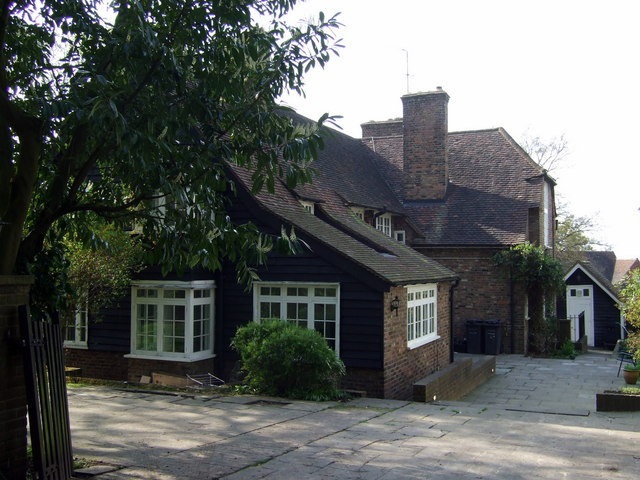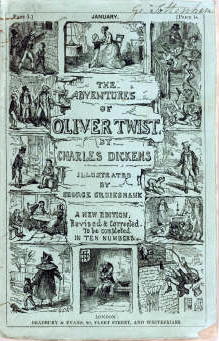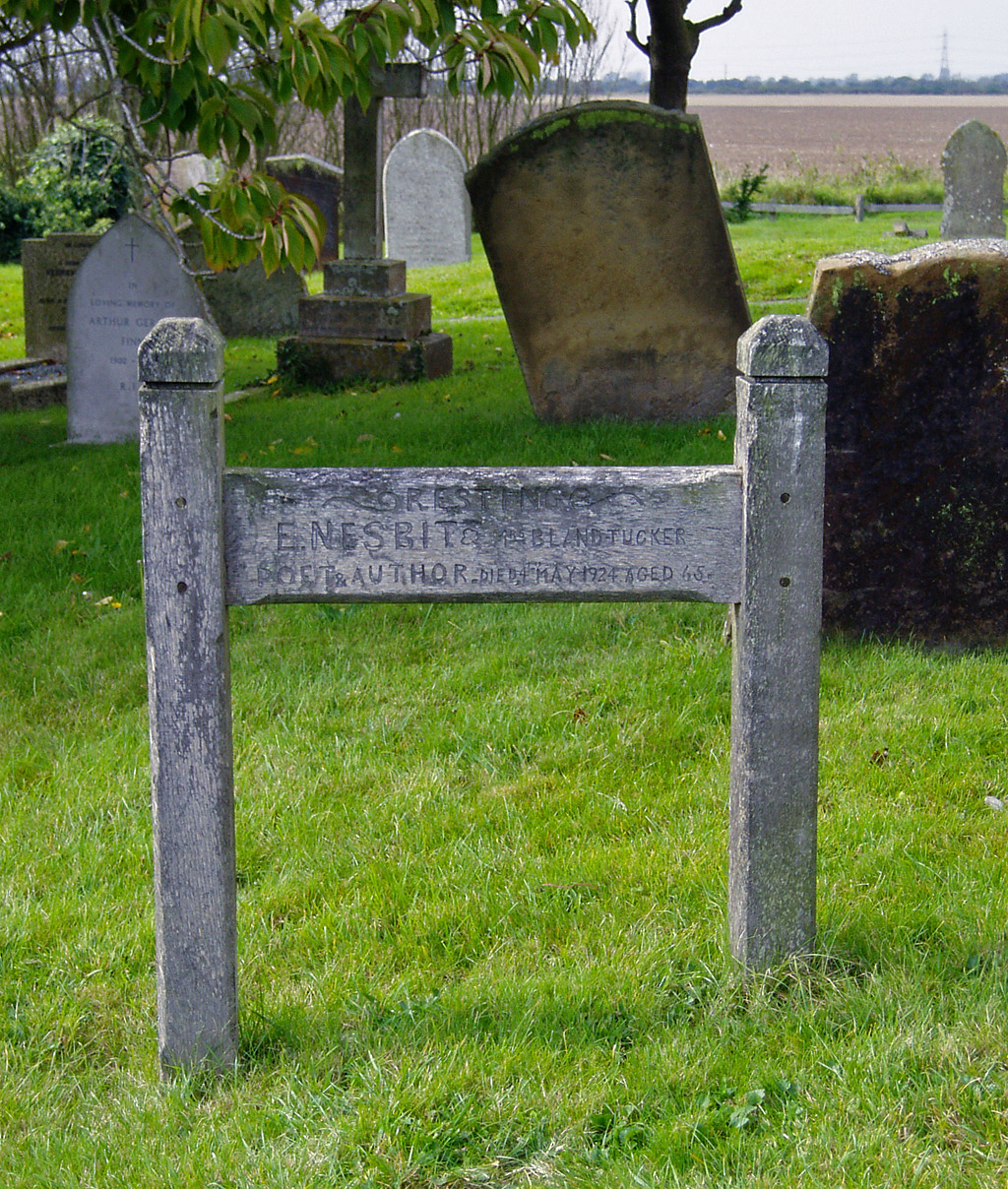|
Wyldes Farm
Wyldes Farm is a Grade II* listed former farmhouse in the hamlet of North End, Hampstead, in the London Borough of Barnet (right on the boundary with Camden), NW11. Early history of the estate Built in about 1600, it was the farmhouse for one of two estates acquired by Eton College in 1449, soon after its foundation. The estate includes what is now the Hampstead Heath Extension. The other estate was Chalcotts, better known today as Chalk Farm. The Eton College estate originated in grants of land by Bela, widow of Austin the mercer, in 1259 and by William de Pavely and Millicent his wife in 1273 to the hospital of St James, Westminster, which in 1321 held 124 acres of land and wood in the parish. After 1449, when custody of the hospital was granted to Eton College (in order to provide accommodation for officers of the college on business trips to London), the college took possession of the Hendon estate, which was called "the Wylde" in 1480–1. Eton surrendered St. James's Hospi ... [...More Info...] [...Related Items...] OR: [Wikipedia] [Google] [Baidu] |
Oliver Twist
''Oliver Twist; or, The Parish Boy's Progress'', Charles Dickens's second novel, was published as a serial from 1837 to 1839, and as a three-volume book in 1838. Born in a workhouse, the orphan Oliver Twist is bound into apprenticeship with an undertaker. After escaping, Oliver travels to London, where he meets the "Artful Dodger", a member of a gang of juvenile pickpockets led by the elderly criminal Fagin. ''Oliver Twist'' unromantically portrays the sordid lives of criminals, and exposes the cruel treatment of the many orphans in London in the mid-19th century. The alternative title, ''The Parish Boy's Progress'', alludes to Bunyan's ''The Pilgrim's Progress'', as well as the 18th-century caricature series by painter William Hogarth, ''A Rake's Progress'' and ''A Harlot's Progress''. In an early example of the social novel, Dickens satirises child labour, domestic violence, the recruitment of children as criminals, and the presence of street children. The novel may have ... [...More Info...] [...Related Items...] OR: [Wikipedia] [Google] [Baidu] |
Edith Nesbit
Edith Nesbit (married name Edith Bland; 15 August 1858 – 4 May 1924) was an English writer and poet, who published her children's literature, books for children as E. Nesbit. She wrote or collaborated on more than 60 such books. She was also a political activist and co-founder of the Fabian Society, a socialist organisation later affiliated to the Labour Party (UK), Labour Party. Biography Nesbit was born in 1858 at 38 Lower Kennington Lane, Kennington, Surrey (now classified as Inner London), the daughter of an agricultural chemist, John Collis Nesbit, who died in March 1862, before her fourth birthday. Her mother was Sarah Green (née Alderton). The ill health of Edith's sister Mary meant that the family travelled for some years, living variously in Brighton, Buckinghamshire, France (Dieppe, Rouen, Paris, Tours, Poitiers, Angoulême, Bordeaux, Arcachon, Pau, Pyrénées-Atlantiques, Pau, Bagnères-de-Bigorre, and Dinan in Brittany), Spain and Germany. Mary was engaged in 187 ... [...More Info...] [...Related Items...] OR: [Wikipedia] [Google] [Baidu] |
George Bernard Shaw
George Bernard Shaw (26 July 1856 – 2 November 1950), known at his insistence simply as Bernard Shaw, was an Irish playwright, critic, polemicist and political activist. His influence on Western theatre, culture and politics extended from the 1880s to his death and beyond. He wrote more than sixty plays, including major works such as ''Man and Superman'' (1902), ''Pygmalion'' (1913) and '' Saint Joan'' (1923). With a range incorporating both contemporary satire and historical allegory, Shaw became the leading dramatist of his generation, and in 1925 was awarded the Nobel Prize in Literature. Born in Dublin, Shaw moved to London in 1876, where he struggled to establish himself as a writer and novelist, and embarked on a rigorous process of self-education. By the mid-1880s he had become a respected theatre and music critic. Following a political awakening, he joined the gradualist Fabian Society and became its most prominent pamphleteer. Shaw had been writing plays for years ... [...More Info...] [...Related Items...] OR: [Wikipedia] [Google] [Baidu] |
Beatrice Webb
Martha Beatrice Webb, Baroness Passfield, (née Potter; 22 January 1858 – 30 April 1943) was an English sociologist, economist, socialist, labour historian and social reformer. It was Webb who coined the term ''collective bargaining''. She was among the founders of the London School of Economics and played a crucial role in forming the Fabian Society. Early life Beatrice Potter was born in Standish House in the village of Standish, Gloucestershire, the last but one of the nine daughters of businessman Richard Potter and Laurencina Heyworth, a Liverpool merchant's daughter; Laurencina, was friends for a time with the prolific Victorian novelist, Margaret Oliphant during the 1840s. Both women were campaigned in Liverpool at the time (See Margaret Oliphant Autobiography Edited by Elizabeth Jay, page 25-26). Her paternal grandfather was Liberal Party MP Richard Potter, co-founder of the ''Little Circle'' which was key in creating the Reform Act 1832. From an early age Webb ... [...More Info...] [...Related Items...] OR: [Wikipedia] [Google] [Baidu] |
Sidney Webb
Sidney James Webb, 1st Baron Passfield, (13 July 1859 – 13 October 1947) was a British socialist, economist and reformer, who co-founded the London School of Economics. He was an early member of the Fabian Society in 1884, joining, like George Bernard Shaw, three months after its inception. Along with his wife Beatrice Webb and with Annie Besant, Graham Wallas, Edward R. Pease, Hubert Bland and Sydney Olivier, Shaw and Webb turned the Fabian Society into the pre-eminent politico-intellectual society in Edwardian England. He wrote the original, pro-nationalisation Clause IV for the British Labour Party. Background and education Webb was born in London to a professional family. He studied law at the Birkbeck Literary and Scientific Institution for a degree of the University of London in his spare time, while holding an office job. He also studied at King's College London, before being called to the Bar in 1885. Professional life In 1895, Webb helped to found the London Sc ... [...More Info...] [...Related Items...] OR: [Wikipedia] [Google] [Baidu] |
Hampstead Historic Club
Hampstead () is an area in London, which lies northwest of Charing Cross, and extends from the A5 road (Roman Watling Street) to Hampstead Heath, a large, hilly expanse of parkland. The area forms the northwest part of the London Borough of Camden, a borough in Inner London which for the purposes of the London Plan is designated as part of Central London. Hampstead is known for its intellectual, liberal, artistic, musical, and literary associations. It has some of the most expensive housing in the London area. Hampstead has more millionaires within its boundaries than any other area of the United Kingdom.Wade, David"Whatever happened to Hampstead Man?" ''The Daily Telegraph'', 8 May 2004 (retrieved 3 March 2016). History Toponymy The name comes from the Anglo-Saxon words ''ham'' and ''stede'', which means, and is a cognate of, the Modern English "homestead". To 1900 Early records of Hampstead can be found in a grant by King Ethelred the Unready to the monastery of St. P ... [...More Info...] [...Related Items...] OR: [Wikipedia] [Google] [Baidu] |
Fabian Society
The Fabian Society is a British socialist organisation whose purpose is to advance the principles of social democracy and democratic socialism via gradualist and reformist effort in democracies, rather than by revolutionary overthrow. The Fabian Society was also historically related to radicalism, a left-wing liberal tradition. As one of the founding organisations of the Labour Representation Committee in 1900, and as an important influence upon the Labour Party which grew from it, the Fabian Society has had a powerful influence on British politics. Members of the Fabian Society have included political leaders from other countries, such as Jawaharlal Nehru, who adopted Fabian principles as part of their own political ideologies. The Fabian Society founded the London School of Economics in 1895. Today, the society functions primarily as a think tank and is one of twenty socialist societies affiliated with the Labour Party. Similar societies exist in Australia (the Australi ... [...More Info...] [...Related Items...] OR: [Wikipedia] [Google] [Baidu] |
Charlotte Wilson
Charlotte Mary Wilson (6 May 1854, Kemerton, Worcestershire – 28 April 1944, Irvington-on-Hudson, New York) was an English Fabian and anarchist who co-founded '' Freedom'' newspaper in 1886 with Peter Kropotkin, and edited, published, and largely financed it during its first decade. She remained editor of ''Freedom'' until 1895. Life and work Born Charlotte Mary Martin, she was the daughter of a well-to-do physician, Robert Spencer Martin. She was educated at Newnham College, Cambridge. She married Arthur Wilson, a stockbroker, and the couple moved to London. Charlotte Wilson joined the Fabian Society in 1884 and soon joined its Executive Committee. At the same time she founded an informal political study group for 'advanced' thinkers, known as the Hampstead Historic Club (also known as the Karl Marx Society or The Proudhon Society). This met in her former early 17th century farmhouse, called Wyldes, on the edge of Hampstead Heath. No records of the club survive but ... [...More Info...] [...Related Items...] OR: [Wikipedia] [Google] [Baidu] |
Dick Swiveller
Richard 'Dick' Swiveller is a fictional character in the 1841 novel ''The Old Curiosity Shop'' by Charles Dickens. Initially a comical accessory to the antagonists in the novel, he undergoes a transformation, becoming a key helpmate bridging the depiction of the main characters that are either mostly villainous or goodly in nature. Character Initially, Swiveller is the easily manipulated friend of Frederick Trent, the wastrel older brother of Nell Trent; the clerk of Sampson Brass until he is dismissed, and the guardian and eventual husband of the Marchioness. He delights in quoting and adapting literature to describe his experiences. Laid back in character. he seems to have few worries despite owing money to just about everybody. Fred Trent wants Swiveller to marry Fred's sister Nell, so he'll have the supposed fortune of their grandfather. They have to wait, since Nell is too young to marry. When the destitute Nell and her grandfather leave London Swiveller is befriended by the ... [...More Info...] [...Related Items...] OR: [Wikipedia] [Google] [Baidu] |
The Old Curiosity Shop
''The Old Curiosity Shop'' is one of two novels (the other being ''Barnaby Rudge'') which Charles Dickens published along with short stories in his weekly serial ''Master Humphrey's Clock'', from 1840 to 1841. It was so popular that New York readers stormed the wharf when the ship bearing the final instalment arrived in 1841. ''The Old Curiosity Shop'' was printed in book form in 1841. The plot follows the life of Nell Trent and her grandfather, both residents of The Old Curiosity Shop in London. Queen Victoria read the novel in 1841 and found it "very interesting and cleverly written". Plot Background The events of the book seem to take place around 1825. In Chapter 29, Miss Monflathers refers to the death of George Gordon Byron, 6th Baron Byron, Lord Byron, who died on 19 April 1824. When the inquest rules (incorrectly) that Quilp committed suicide, his corpse is ordered to be burial at cross-roads, buried at a crossroads with a stake through the heart, a practice banned ... [...More Info...] [...Related Items...] OR: [Wikipedia] [Google] [Baidu] |
John Forster (biographer)
John Forster (2 April 1812 – 2 February 1876) was an important Victorian English biographer and literary critic. Life Forster was born at Newcastle upon Tyne. His father, who was a Unitarianism, Unitarian of a Northumberland family, was a cattle-dealer. John Forster was educated in classics and in mathematics at Royal Grammar School, Newcastle, The Royal Grammar School. Forster in 1828 matriculated at the University of Cambridge, but after only a month's residence there he moved to London, where he attended classes at University College London, and entered the Inner Temple. In London, Forster successfully contributed to True Sun (London newspaper), ''The True Sun'', ''The Morning Chronicle'' and ''The Examiner (1808–86), The Examiner'', for which he was literary and dramatic critic. An extract of his ''Lives of the Statesmen of the Commonwealth'' (1836–1839) was published in Lardner's Cabinet Cyclopaedia, Lardner's ''Cabinet Cyclopaedia''. Forster subsequently published ... [...More Info...] [...Related Items...] OR: [Wikipedia] [Google] [Baidu] |



.jpg)


.jpg)

